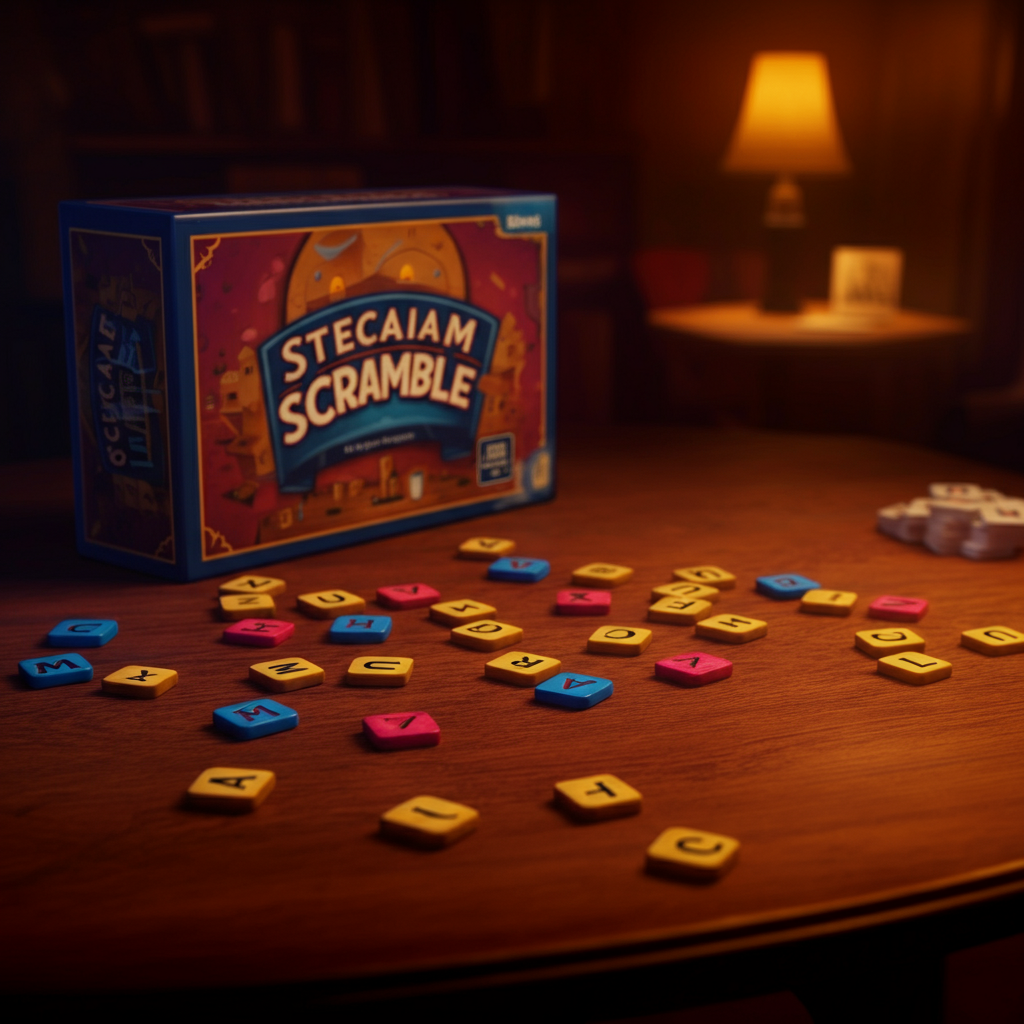Word puzzles have long captured the imagination of language enthusiasts. Among these puzzles, the “Stecaiam Scramble” stands out as an elegant challenge where letters are rearranged to form meaningful words. Whether you’re looking to sharpen your vocabulary or indulge in a bit of leisurely puzzling, solving a scramble like “Stecaiam” offers both intellectual stimulation and relaxing enjoyment.
The task may seem daunting at first, but as with all puzzles, the satisfaction lies in discovering the hidden connections. If you’re curious about how to master this game and similar word scrambles, you’re in for an exciting exploration. We’ll discuss strategies, examples, and key tools to help you conquer the challenge.
What Is a Stecaiam Scramble?
The “Stecaiam Scramble” is a type of anagram puzzle where a set of letters (in this case, “stecaiam”) must be rearranged to form meaningful words. While this exact term isn’t widely discussed in popular puzzling culture, it aligns perfectly with traditional word scramble games such as Scrabble or Boggle.
For instance, if you encounter the letters “stecaiam”, you can unwind them into several combinations such as:
- Acmates (meaning companions, mates, or colleagues)
- Acmeist (an appreciation for peaks or ideals)
- Masticate (to chew food thoroughly)
Besides offering a satisfying challenge, solving a scramble expands your vocabulary, sharpens cognitive analysis, and provides moments of linguistic delight.
Why Solve Word Scrambles?
Word scramble games aren’t just entertaining—they come with a wide variety of benefits:
- Boost Vocabulary: Each solved scramble introduces you to new words or reinforces knowledge of familiar ones.
- Enhance Cognitive Function: These puzzles stimulate your brain, fostering sharper thinking, improved memory, and a keener sense of problem-solving.
- Relaxation with Purpose: Scrambles offer a balanced mix of relaxation and mental engagement, perfect for unwinding without feeling idle.
- Stay Competitive: If you’re someone who enjoys word games like Scrabble or Words with Friends, scrambles keep you sharp and ready to dominate friendly matches.
Now that we understand the appeal, let’s discuss some effective strategies to solve word scrambles systematically.
Strategies to Solve Stecaiam Scramble (or Any Word Scramble)
1. Start with Short Words
Begin by identifying 2- or 3-letter words. These smaller combinations are usually easier to spot and can clue you into patterns within the letters. For example, “stecaiam” includes sit, mat, and cat.
2. Focus on Vowels and Consonants
Separate vowels (A, E, I) from consonants and try pairing them. This helps form logical syllables, making it easier to identify meaningful combinations. For example:
- Vowels in “stecaiam”: A, E, I
- Pairing possibilities like ai, am, and ae guide you toward longer word formations like masticate.
3. Look for Roots and Prefixes
Scan for common word roots, suffixes, or prefixes such as “ate,” “ist,” or “mate.” Puzzles often include words that follow familiar linguistic structures.
4. Reshuffle and Rearrange
A helpful trick is to write down the letters in different sequences or use letter tiles to physically “play” with their arrangement. Sometimes seeing the letters in a new order sparks an “aha” moment.
5. Use Online Tools
When all else fails or time is short, tools like Word Unscrambler or Unscramble.me can generate solutions instantly. These platforms analyze your input letters and deliver valid word combinations. While they won’t replace the joy of solving the puzzle yourself, they’re fantastic for learning and practice.
6. Practice with Classic Word Games
To prepare for future word scrambles, engage with classic word games regularly. Games like Scrabble, Boggle, or mobile apps such as Words with Friends and Wordscapes not only sharpen your skills but also make learning fun.
Beyond “Stecaiam”: The Beauty of Wordplay
The charm of puzzles like “Stecaiam Scramble” lies beyond just unscrambling letters. It’s about connecting with language on an intimate level, understanding its nuances, and exploring creative possibilities.
Scramble enthusiasts often find joy in discovering rare and beautiful words, such as:
- Palimpsest (something altered but still bearing traces of its original form)
- Sonorous (rich, deep, and resonant in sound)
- Ephemeral (lasting a short time)
Becoming familiar with unique vocabulary not only enhances your linguistic repertoire but also inspires curiosity about the stories and cultures behind words.
Feeling inspired? Why not curate your own word scramble challenge and invite friends or colleagues to join in the fun?
Tools & Resources for Scramble Success
To level up your word scramble game, here’s a curated collection of tools and resources to get started:
- Word Unscrambler (www.wordunscrambler.com): A simple, user-friendly platform to input scramble letters and view potential solutions.
- Scrabble Word Finder (www.scrabblewordfinder.org): Great for practicing anagram-building with game-approved vocabulary.
- Thesaurus.com: Use it to explore synonyms and broaden your overall word knowledge.
- Word Games Apps: Download apps like WordScapes, Boggle With Friends, or Wordfeud for on-the-go training.
Frequently Asked Questions
What exactly does “stecaiam” unscramble to?
The letters “stecaiam” can be rearranged to form words like “acmates,” “acmeist,” and “masticate.” Exploring these words introduces exciting vocabulary!
Are word unscrambling tools considered “cheating”?
Not at all—using tools is a way to learn and expand your skills. Over time, you’ll develop an intuitive grasp of patterns in scrambles without needing assistance.
How can I improve at solving scrambles without tools?
Practice makes perfect! Play more word games, learn about common prefixes/suffixes, and read extensively to familiarize yourself with diverse vocabulary.
Can word scrambles help with language learning?
Absolutely. Word scrambles improve spelling, enhance vocabulary, and familiarize learners with the construction of words, making them a fun yet educational tool for language learners.

